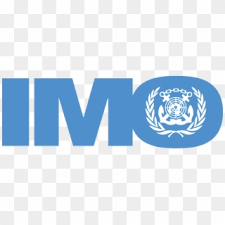India was re-elected to the International Maritime Organisation (IMO) Council with the highest tally
Key Highlights of India’s Re-Election to IMO Council
- The term of council will be for the biennium 2024-25
- The statement said India’s re-election falls under the category of 10 states with “the largest interest in international seaborne trade”
- The council is the executive organ of IMO and is responsible, under the assembly, for supervising the work of the organization.
- Between sessions of the assembly, the council performs the functions of the assembly, except that of making recommendations to governments on maritime safety and pollution prevention.
- According to the statement, under the MIV 2030 to enhance representation at IMO, India aims at appointing permanent representatives at IMO London.
Other Countries Elected to the IMO Council for 2024-2025
- The Assembly of the International Maritime Organization has elected the following States to be Members of the Council for the 2024-2025 biennium:
- Category (a): 10 States with the largest interest in providing international shipping services (listed in alphabetical order):
- China, Greece, Italy, Japan, Liberia, Norway, Panama, the Republic of Korea, the United Kingdom and the United States
- Category (b):10 States with the largest interest in international seaborne trade:
- Australia, Brazil, Canada, France, Germany, India, Kingdom of the Netherlands, Spain, Sweden and the United Arab Emirates
- Category (c): 20 States not elected under (a) or (b) above, which have special interests in maritime transport or navigation and whose election to the Council will ensure the representation of all major geographic areas of the world:
- Bahamas, Bangladesh, Chile, Cyprus, Denmark, Egypt, Finland, Indonesia, Jamaica, Kenya, Malaysia, Malta, Mexico, Morocco, Peru, the Philippines, Qatar, Saudi Arabia, Singapore, and Türkiye.
- The newly elected Council will meet, following the conclusion of the 33rd Assembly, for its 131st session (on 7 December) and will elect its Chair and Vice-Chair for the next biennium.
What is the International Maritime Organisation (IMO)?
- The IMO is a specialized agency of the United Nations (UN) that is responsible for regulating shipping and preventing marine pollution from ships.
- IMO was established in 1948 following a UN conference in Geneva and came into existence in 1958.
- IMO has 175 Member States and three Associate Members
- Its headquarters are in London, United Kingdom.
- India joined the IMO in 1959
Structure and Function of the IMO
- IMO is governed by an assembly of members and a council of 40 members, which is elected by the assembly for a two-year period.
- The Assembly is the highest Governing Body of the IMO.
- It consists of all Member States, and it meets once every two years in regular sessions. The Assembly is responsible for approving the work program, voting the budget and electing the Council.
- The IMO Council, being the executive organ, is responsible for supervising the organization’s work, especially in maritime safety and pollution prevention.
- IMO’s work is conducted through five committees and several subcommittees, which develop and adopt international conventions, codes, resolutions, and guidelines
Role
- Its main role is to create a regulatory framework for the shipping industry that is fair and effective, universally adopted and universally implemented.
- It is also involved in legal matters, including liability and compensation issues and the facilitation of international maritime traffic.
- It does not have an implementation mechanism.
- IMO has adopted measures to reduce air pollution from ships as well as energy efficiency measures including the Energy Efficiency Design Index, which is mandatory for new ships, and the requirement for a Ship Energy Efficiency Management Plan, for all ships.
- IMO celebrates World Maritime Day every last Thursday of September, to highlight the importance of shipping and maritime activities.
To Download Monthly Current Affairs PDF Click here
Click here to get a free demo
Everything About CLAT 2026



